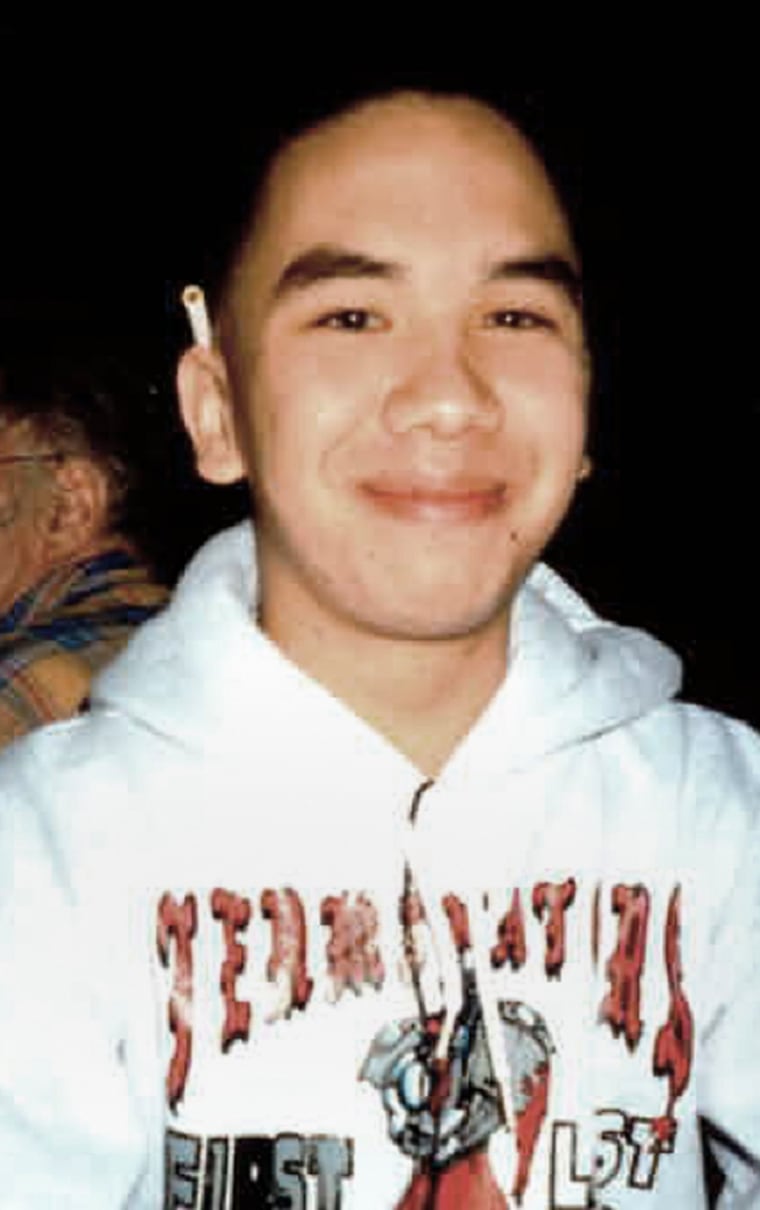A soldier who went missing for four days after a solo navigation exercise died from hyperthermia and dehydration, according to autopsy results released Wednesday.
The body of Sgt. Lawrence G. Sprader, 25, was found about 8:30 p.m. Tuesday in a brushy area on the Central Texas Army post's training ground, said Eddy Howton, Fort Hood's director of emergency services. He had been missing since Friday, prompting thousands of troops to search for him for days amid 90-degree heat.
A brief report on the autopsy, conducted at the Southwestern Institute of Forensic Sciences at Dallas, was released by a Bell County justice of the peace. The report did not provide further details.
Officials have said Sprader had two canteens and a water backpack when he left, and that he had ample access to creeks and other water sources on the training range.
Howton said earlier Wednesday he didn't know if Sprader still had those supplies when he was found. Howton also said he did not know if searchers found anything that would indicate how long Sprader had been dead.
"We are deeply saddened for his family," Howton said. The family did not attend a briefing Wednesday.
3,000 scoured countryside
Sprader went missing Friday during the exercise testing basic map-reading and navigation skills, prompting a massive search of the rugged exercise area. Howton said in all 3,000 soldiers and searchers from 14 outside agencies covered about 20,000 acres, an effort that involved people on foot, horseback, ATVs, and even helicopters and a plane with heat-detecting equipment.
When commanders reached Sprader on his phone late Friday — the last time anyone spoke to him — he did not indicate he was ill or distressed but was determined to finish the exercise.
"He was a model soldier. He had a goal to succeed," said Lt. Col. Carter Oates, 11th MP Battalion, Commander, Criminal Investigations Division, which is where Sprader was assigned.
Sprader, of Prince George, Va., was one of nearly 320 noncommissioned officers being trained as part of a two-week leadership course. He had already completed two previous land map training exercises, officials said. Nine other soldiers also became disoriented during the three-hour exercise, but they safely got back to the rally point by following the sound of a siren that blasts when time is up, said Col. Diane Battaglia, a III Corps spokeswoman at Fort Hood.
Scattered sightings
Motorists reported seeing a soldier matching Sprader's description near a road Friday evening. One sighting was on the eastern edge of the post, while another was on the far northern edge, making it difficult to concentrate the search in one area, Battaglia said. The sightings, and his score card from the exercise, had been the last signs of him.
The search included re-searching of parts of 15,000-acre training range that includes rugged hills, dense brush, high grass and juniper trees. An aircraft equipped with heat-seeking infrared equipment was brought in Tuesday.
Post officials said no other soldier has ever been lost on the heavily used range long enough to prompt such a massive search. They said Wednesday it was the first time the exercise Sprader was on had ended in a death.
"Generally the individuals are located within 30-40 minutes," said Robert Volk, Fort Hood's chief game warden.
Oates said he believes the proper risk assessments for such an exercise are in place. Howton said officials will review how they handled their search to see if it can be improved.
Sprader returned from an Iraq deployment in September but had no orders for redeployment to the war zone.
"It's devastating to lose any type of soldier," on the post or somewhere else, Oates said.
